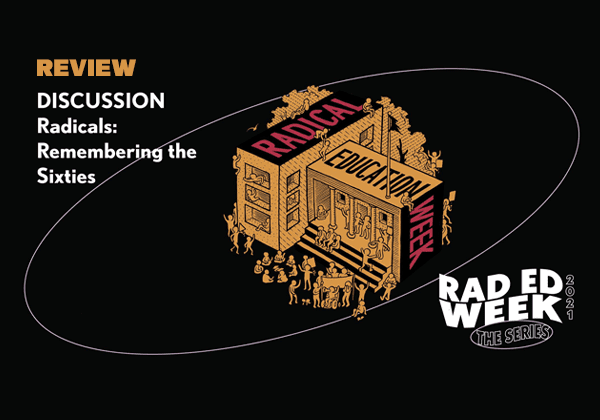“In the days before social media, the only way to get our message out was to go and get arrested and get in the media.”
Meredith Burgmann and Nadia Wheatley are two of Sydney’s most well-known activists, famous for their longtime commitment to social justice. They released a book earlier in the year called Radicals: Remembering the Sixties which tells the stories of those famous few decades, through interviews with ten people who experienced them firsthand.
Many of the stories they told at their Radical Education Week panel are already seared into our minds as young activists – told to each other at the pub as methods of induction into political involvement; great tales of the actions which shaped our movement. It reminds us that it wasn’t necessarily unreachable heroes making the waves of change – it was students, young people and regular activists. They were brave, and they were connected. Learning of their wins is a reminder that we can win, too.
The panel, run by SRC President Swapnik Sanagavarapu, took place on Zoom. Throughout the event, a picture is painted of a starkly different context for political organising, in particular, the Left having a clear enemy, with a name and a face. It seems obvious, but convincing people that a transparently pro-war Government is something worth fighting against provided common ground for activists back in the day, something we don’t always have to work off with the myriad of visions and enemies the collective left find ourselves chasing after.
Burgmann and Wheatley shared stories of battles that they faced on two fronts; both lived at the Women’s College while studying their English degrees. At the time, there was a strict dress-code: women weren’t to leave the college wearing trousers, meaning the two of them would often show up to protests, and subsequently get arrested, wearing skirts. They had to develop a rather skillful technique for crossing their legs while being carried by police officers, so the press wouldn’t run photos with their underwear out. Although few of us would have to worry about this now, it’s a lighthearted lesson in picking your battles – “we were out getting arrested under the laws of the land, but we were too scared to break the rules of the Women’s College about skirts”.
The highlights of the workshop were also in the stories that showed little change to campus politics: there are always “two trots and three factions”, the Labor clubs could never quite work out how to get along, and Paul’s boys are always the biggest hindrance to getting anything done.
The event wraps us with questions about their advice on what to do now for radicalism, and how to bring more people into the fold. It’s a comfort for many of us when we hear that they’re actually rather impressed with the work of young activists, particularly the climate justice movement. Burgmann importantly notes, too, that the reason they did so much was because they had the time to, and because they could afford to – they could rush into town to protest at the drop of a hat because government support was so good for students that they didn’t spend half their week at casual jobs, and because they could all afford to live on the doorstep of campus.
And their advice on how to bring apolitical friends into the movement? Take them to the pub, buy them a beer, and talk to them. And keep doing it.
The best method since time immemorial.
Follow Radical Education Week on Facebook for more events.





